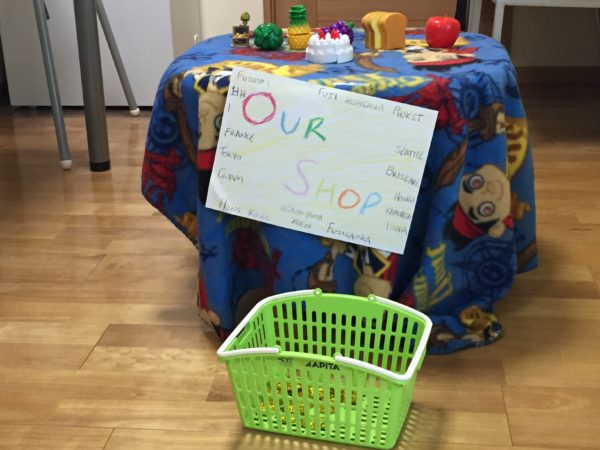You want to be more than a character or a “dancing monkey” – you want to be an adored and indispensable English teacher.
 You nailed the interview, prepared your wardrobe with the most professional teaching outfits, have made instant friends with all of your co-workers, and can’t wait to teach the kids all about your home country.
You nailed the interview, prepared your wardrobe with the most professional teaching outfits, have made instant friends with all of your co-workers, and can’t wait to teach the kids all about your home country.
It’s perfect, right?
Your first month flies by in a whirlwind of training, remembering student names, following the curriculum to a T, and wash-rinse-repeating your 自己紹介 (jikoshoukai – self-introduction) too many times to count.
Fast-forward another month and your life as an English teacher begins to dampen somewhat when the kids stop showing an interest in your presence. The parents who were once very keen to converse with you have now become distant with blank head-nods or plastic smiles. You start to dread the classes where students have started to act-up, and your lesson plans feel as repetitive as white rice.
Then, one day out of the blue, your manager mentions in a hushed voice that you’ve received a few troubling parent complaints. Turns out the kids don’t like you and are asking for a new, refreshing face to teach the classes.
You don’t get it. You always smiled, followed the curriculum, and the kids were somewhat learning, at least as much as you could be responsible for.
What went wrong?
Welcome to the reality of teaching English; in Japan some parents and companies want you to be a character for the kids, and as such you are expected to jump through hoops and keep the crowd entertained while spreading your knowledge of language. In order to always have the smiley-face approval stamp, you are expected to refresh your image; similar to a reality TV program or long-running drama series.
Not the lifestyle you planned on living? Don’t worry – here are five tips to help you launch on the right foot and break away from the character expectations.
1. Surprise Meet and Greet
Catch people off-guard by doing something unexpected. While crazy might land you a swift kick out the door, a quick thumbs-up after introducing yourself, a catchy rhyme with your name, or tossing in a Japanese phrase or two will set you up with confidence from the get-go.
For me, I greet new students with a wibbly-wobbly handshake which usually earns a giggle.
Try not to wink or touch someone (apart from a handshake) when greeting. It’s a cultural faux pas sure to cause uncomfortable tension. Just be nice and friendly, and don’t forget to smile.
2. Education versus Edutainment
 Kids like to learn, but love to play. Combining the two is not just a great idea, it’s your job. Play doesn’t always mean games or keeping score, it’s about making the mundane exciting. Try to incorporate as much active play as possible through instructions, games, and activities. This might mean rolling dice after a review question and high-fiving that many people, butt-crawl races to the other side of the room, and patty-caking a days-of-the-week chant.
Kids like to learn, but love to play. Combining the two is not just a great idea, it’s your job. Play doesn’t always mean games or keeping score, it’s about making the mundane exciting. Try to incorporate as much active play as possible through instructions, games, and activities. This might mean rolling dice after a review question and high-fiving that many people, butt-crawl races to the other side of the room, and patty-caking a days-of-the-week chant.
For me, I use active orders and a verbal countdown to keep students invested in the activity. If I ask a review question, I count down three seconds for students to answer before I order them to get up and touch a wall. It keeps them on their toes.
Be aware of the classroom dimensions. Tight space? Use levels instead of running – “Touch the floor, jump ten times, stand on one leg.”
3. Compassion Over Anger
Everyone has their bad days. Teachers have a mountain of expectations along with personal life to work through, let alone dealing with a student who decided it was okay to カンチョー (kancho) your backside while leaning over to pick up a pencil. If you don’t know what ‘カンチョー‘ means, you’re in for a sharp cultural learning curve.
Instead of instantly switching to yelling mode, try a quiet approach which often encourages reflection of behaviour by the student. Practice, practice, practice your ‘teacher’ face to use when facing unsavoury behaviour; the less yelling you do, the less tired you are, the better the lesson, the happier the parents.
For me, I cross my arms, poker-face my expression, and wait. If behaviour escalates, I ask everyone to sit, then lower myself to their level and stare – it’s a psychological trick to have students feel as if they’re addressing a peer. It works wonders for chatty classes, overly-active students, and the one-off bad behaviour student.
4. It’s Not About You
Before and after classes are usually an awkward transition between getting students out the door and getting the next class in. If parents are waiting in the lobby or outside the door, feel free to chat about what interests them. If parents feel you are keen to get to know them, they are less likely to complain about you.
Feel like your language isn’t up to scratch? Study a few phrases like weather, emotions, everyday tasks, and hobbies. Once you know a parent’s hobby, you can enthuse about it with them. Don’t make the conversation about you unless you’re adding to what they said.
For me, getting to know parents is not just a way to pass time, it’s part of my job expectations and business structure to know what my students’ parents like, don’t like, and want. I try to impart a few English vocabulary words about parents’ hobbies for brownie points.
How Charlie 4x his hourly rate by having a great relationship with parents!
My relationships with my students’ parents let me name my terms and structure my job how I wanted it. I didn’t want to work at one of my schools six days a week, which would have been my second year contract. The parents and students all loved me because of the effort I put in to build good relationships with all of them, so the school basically had to agree to let me go part time where I earned 50% of the pay for 20% of the hours.
Sounds like a good deal to me!
5. Flip-Side
In addition to knowing what the parents like, take an interest in what the students are into. Keep an eye-out for novels or manga poking out of kids’ bags, and enthuse about it with them. It keeps you relatable and likeable as a human as compared to an English, fleshy robot.
For me, I know my students are into Harry Potter, and they know I’m a fan, too. Before class they try to one-up me with a Harry Potter quiz (I have yet to get one question wrong), and I pretend I have no idea what they’re saying unless they ask in English. I also add Harry Potter-themed activities to my lessons, threaten incorrect answers with jinxes (which the students love to act-out), and make a show-and-tell of emphasising cultural tidbits from the books.
A big thank you to Rebecca for the help, and I’m sure a lot of the English teachers out there will appreciate these tips.
Rebecca and Charlie met when she joined Charlie’s newly formed Nagoya Hangout 名古屋しゃべり場 language exchange and events Meetup group, and they became good friends. When Charlie left for Tokyo to work at Fuji Kindergarten, there was nobody else he could trust to organise future events for his beloved meetup than Rebecca!
Rebecca Curtis-Ito is the owner of Second Family English in Nagoya, Japan; an English lifestyle service with family events, cultural programs, child-minding, and lessons for International and Japanese families. Go to her website now to find out more!
Website: www.secondfamilyenglish.com
Facebook: www.facebook.com/



